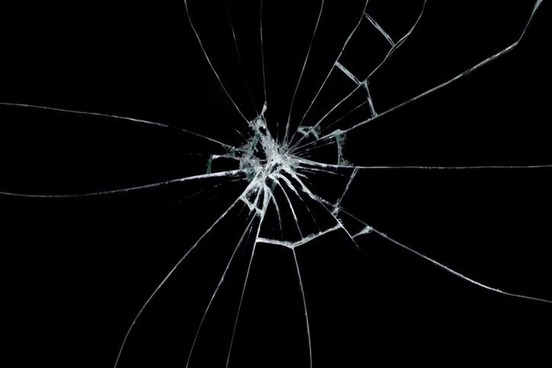
Haywire
Some officials worried that disappointed queuers might not make it to the coffin before the state funeral starts on Monday. Or, worse, that in a nation with a deep attachment to orderly queuing, there was the threat of line jumping sparking public disorder. It consulted behavioral psychologists to predict turnout. The government also put 1,500 soldiers on standby in case the line went haywire.
— Max Colchester, The Wall Street Journal, 15 Sept. 2022
Haywire has a literal meaning: the wire used in baling hay, often used to facilitate makeshift repairs. Haywire has a reputation for being difficult to manage, leading to such expressions such as haywire outfit, originally referring to a poorly equipped group of loggers and then anything that was flimsy or patched together, and gradually for attempts gone wrong.
We can thank 20th-century writers such as John O'Hara and William Faulkner for stretching haywire to mean "crazy":
"Why?" the doctor said. "You put up as pretty a scrap against forty or fifty men as I ever saw. You lasted a good two seconds. Now you can eat something. Or do you think that will send you haywire again?"
— William Faulkner, The Wild Palms, 1939

Miscue
Both teams will look to get past embarrassing Week 1 miscues: The Rams (0-1) are hoping to avenge their home loss in the season opener, and the Falcons (0-1) are still smarting after blowing a big lead in the fourth quarter to the Saints.
— David Hill, The New York Times, 18 Sept. 2022
Miscue turns up in a lot of sportswriting, from golf to football, as a kind way of referring to a mistake made by a player. That's appropriate, since the word originated with another sport: pool. The cue in miscue indeed refers to the cue stick; a miscue was originally a faulty stroke in which the cue stick does not strike the cue ball cleanly.
Don't lower the butt of the cue to bring its tip into this position. This throws the cue off level and increases the danger of a miscue.
— Willie Mosconi, Winning Pocket Billiards, 1965

Wonky
And there is something genuinely beautiful about objects lovingly handmade from timber - even if some of them are sometimes a little bit wonky.
— Sydney Morning Herald (Sydney, Aus.), 19 Sept. 2022
The funny-sounding adjective wonky has two separate entries in the dictionary. The first of these relates to the noun wonk, meaning one preoccupied with the arcane details or procedures within a field (such as a wonky statistician).
The word's use to describe things that don't hold together as well as they should—such as a wonky door hinge, or trying to walk on a wonky ankle—originated as a British usage and is believed to be an alteration of a dialectical noun, wankle. It's now frequently seen in the construction go wonky, meaning "to stop working properly."

Boner
Given the amount of harassment that occurs on Twitter, a lot of users may be reluctant to let Joe Public contact them. On the other hand, if you made a boner in a tweet or link, someone could point it out in a direct message and save you a public shaming.
— Steve Dent, Engadget, 20 Apr. 2015
A boner is one who bones—you know, puts stays into garments. But that sense of boner has nothing to do with its meaning of a clumsy or stupid mistake. Garment workers are by no means stupid or clumsy. The "mistake" sense arose in the early 20th century, around the same time as bonehead to mean a stupid person.

On the fritz
Could I walk my seafood leftovers there safely in the 90-plus degree heat? To complicate matters, the air conditioning in my car is on the fritz.
— Peggy Grodinsky, Portland Press Herald (Portland, ME), 18 Aug. 2022
Just as humans mess up, so do our machines. The phrase on the fritz dates to the beginning of the 20th century--a time, perhaps, when electric appliances were becoming more common (and consequently break down) in American homes.
However, nobody knows the exact origin of the term. Some have been tempted to connect the phrase to The Katzenjammer Kids, a comic strip featuring a prankish character named Fritz, but no evidence supports the theory. Alternately, some might hear in fritz the sound of an electrical connection short-circuiting. Now anything from relationships to careers can go on the fritz.

Gaffe
In his decade in public office, he hasn't made a single notable gaffe. Those who respect him say he's a serious lawmaker, yet private. Those who want to defeat him say he's "insular" and "very scripted.”
— Kaitlin Lange, Indianapolis Star (Indianapolis, IN), 18 Sept. 2022
While gaffe can apply to a physical blunder (as in "the shortstop's gaffe on a routine grounder"), it's more likely to refer to an error of social or diplomatic tact, such as when you forget to thank your host after a party.
The word is believed to derive from the French word for gaff, referring to a hook (such for hanging freshly caught fish). While gaff has other meanings, including "a hoax or gimmick," the origin of that sense is not known.

Kaput
Exactly two and a quarter years later, on December 26, 1991, the country called the Soviet Union to turn off all its lights. It simply went kaput.
— Dhaka Courier (Dhaka, Bang.), 6 May 2022
Kaput originated with a French card game called piquet where winning all twelve tricks in a hand is called faire capot ("to make capot"), but to lose them all is known as être capot ("to be capot"). The word was respelled with a k when it passed through German, and then English speakers borrowed the word to describe things that were broken, useless, or ruined.





